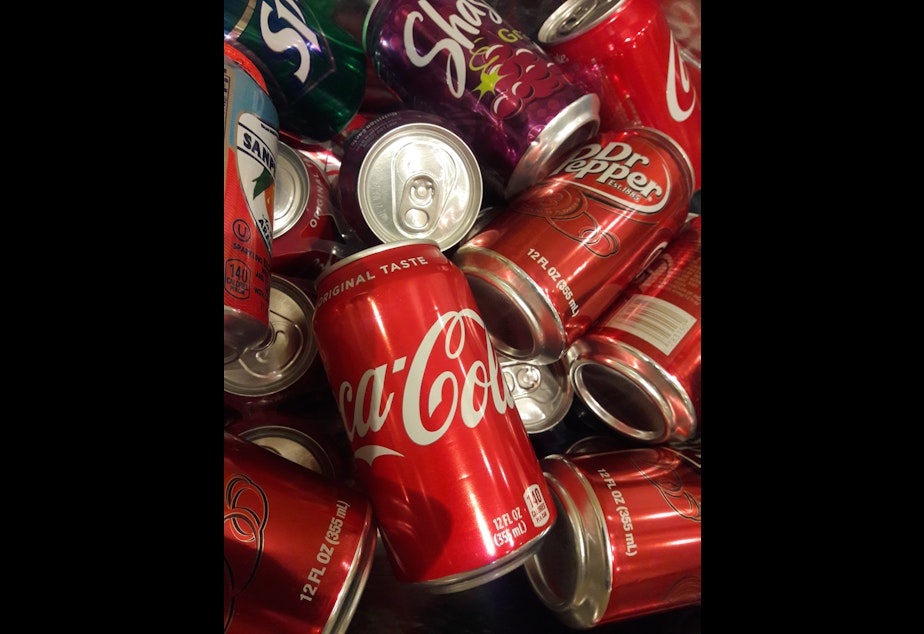Big Soda pours $20M into I-1634 to stop the spread of taxes on sugary drinks

A statewide ballot initiative would stop local governments from passing any new taxes on food and beverages, like Seattle did with soda.
Angela King gets into Initiative 1634 with political analysts C.R. Douglas and Joni Balter.
More than 20 million dollars spent so far on this initiative. Why so much?
C.R. Douglas: Well, because the industry worries that what happens in Seattle will not stay in Seattle. And as you noted they did implement a sugary beverage tax last year. First in the state. And it is raising a ton of money, probably $20 million this year alone. And other cities are looking at that seeing that Seattle struck gold and are thinking about doing the same, and the industry wants to nip this in the bud before the movement spreads.
The group backing Initiative 1634 is called 'Yes to Affordable Groceries.' Wasn't this supposed to be about soda and sugary drinks? Why are we talking about groceries?
Joni Balter: We're talking about groceries because groceries are really popular and people do not want taxes on their groceries. And we're not talking so much about soda over there at the campaign because people don't care that much about taxes on soda. It's that simple. This is a straw man. A possibility of a tax that just hasn't been done anywhere.
Advocates of this initiative claim there's a loophole in the law. Can you explain?
Sponsored
C.R. Douglas: Well it is true that there are certain taxes that cities could levy against groceries and beverages. And this initiative would prevent all that. But opponents say as Joni points out that that's really just theoretical. No city actually ever uses those taxes on food. There will probably be an outpouring if they did. And so there's no need to worry they argue and in fact the industries representing food in general aren't worried. I mean they're not the ones supporting this campaign. You don't see the meat producers in the dairy producers all the rest. It's just soda that's worried. That's the one place where this isn't theoretical. It has been levied in Seattle.
Critics have argued this kind of sweetened beverage tax is regressive, meaning it's harder on low-income people. Is that the case?
C.R. Douglas: Well I think that point is actually pretty uncontestable. It's clear from the data that if you put a flat tax on an item it does hit low-income populations harder and communities of color, which are disproportionately low-income. And there's actually a double whammy here because the product you're talking about that's being taxed is something that's disproportionately consumed in low-income areas and communities of color. So they do bear a bigger burden on something like this.
What does the latest polling show on 1634?
Joni Balter: So the latest polling was absolutely shocking because $20 million on the pro side of this initiative and something like $8,000 opposing it, normally the measure passes. But the Elway Poll shows it at only 31 percent in favor, which is really hard to explain.
Sponsored
C.R. Douglas: It's probably partly because in a typical initiative over taxes, it's the no vote that's usually the antitax vote, and the yes vote is for the tax. Here, it's just the reverse. If you don't like sugary beverage and grocery taxes, you vote yes. That confusion has got to be partly the explainer for this weird disparity.




